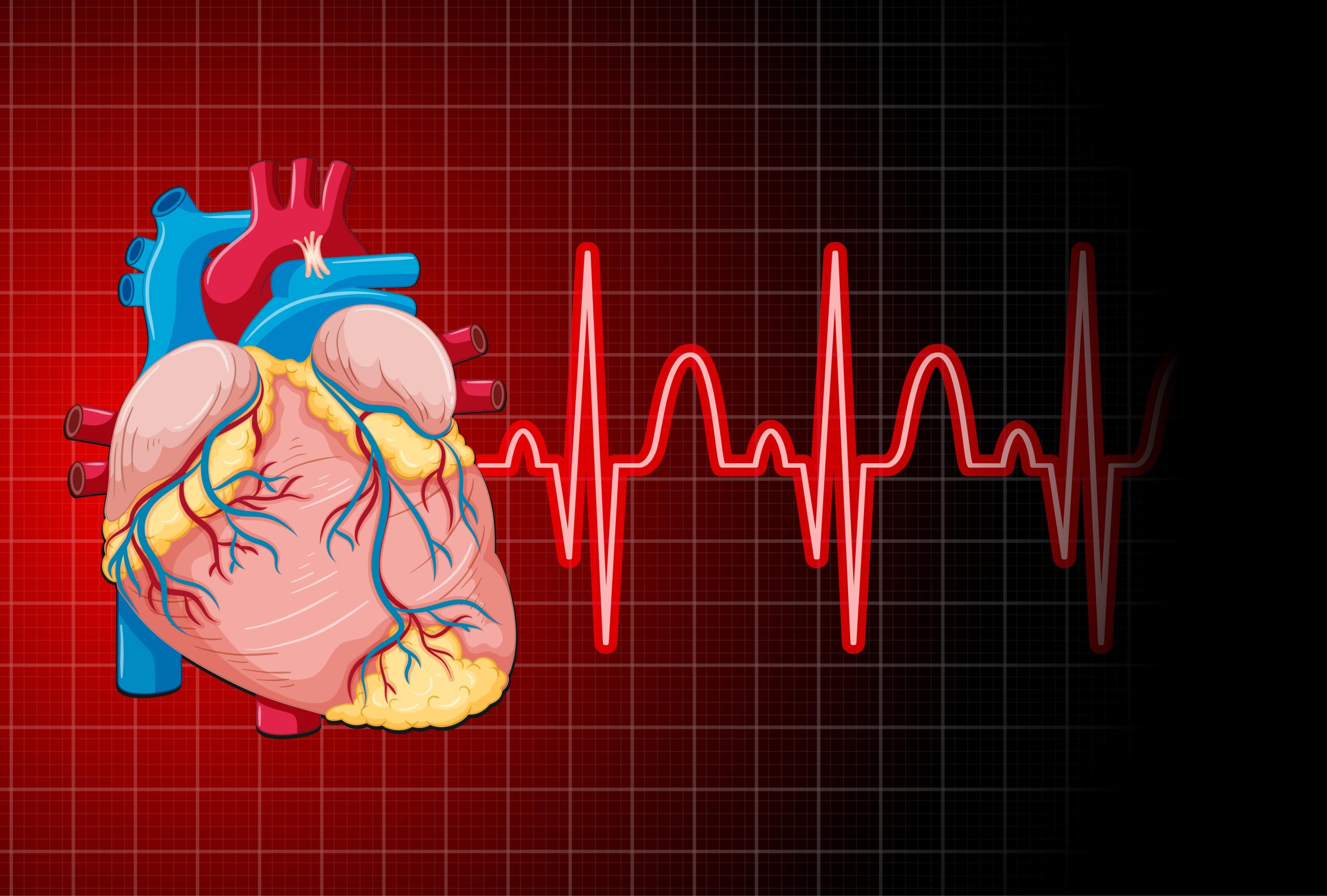The Cardiology Jupiter method to proactive heart management
The Cardiology Jupiter method to proactive heart management
Blog Article
The Role of Cardiology in Preventative Health and Health Providers
Cardiology is progressively recognized for its critical role in preventative health and wellness solutions. By emphasizing aggressive approaches, cardiologists intend to minimize the incidence of cardiovascular diseases. This strategy includes danger assessments, lifestyle adjustments, and normal screenings. Through these initiatives, individuals are motivated to take control of their heart health. The integration of modern technology and partnership with other medical care companies raises vital concerns concerning the future of preventative care. What might this advancement involve?

Comprehending Preventative Cardiology
Recognizing preventative cardiology involves recognizing its vital function in lowering heart disease risk with positive procedures. This branch of medication stresses the importance of way of life adjustments, consisting of workout, anxiety, and diet plan administration, to avoid heart-related problems before they occur. It supports for normal health and wellness screenings and education to encourage individuals in making informed wellness choices.Preventative cardiology likewise encompasses the recognition of danger elements such as high blood pressure, diabetes mellitus, and high cholesterol, advising individuals to take on healthier habits - Cardiology care. By focusing on avoidance instead of response, this method not just enhances specific health and wellness outcomes yet likewise alleviates the total concern on medical care systems. On top of that, it advertises partnership amongst health care neighborhoods, providers, and individuals, fostering an all natural method to heart health and wellness. Eventually, comprehending preventative cardiology motivates a shift in the direction of a proactive frame of mind, focusing on long-term health and wellness and health
Danger Analysis and Management
Danger evaluation is essential in determining cardiovascular dangers that can bring about significant health issues. Effective administration of these dangers commonly entails implementing lifestyle modification methods, such as enhanced diet plan and boosted physical task. By recognizing and addressing these factors, people can greatly reduce their likelihood of creating heart diseases.
Recognizing Cardiovascular Threats
Numerous factors add to cardio health, recognizing cardio dangers is vital for effective avoidance and monitoring. Cardiovascular threat evaluation involves examining different elements, consisting of household history, gender, age, and way of life routines such as smoking and physical inactivity. In addition, health and wellness problems like high blood pressure, diabetes mellitus, and high cholesterol substantially affect an individual's threat account. Health care experts make use of devices such as threat calculators and biomarker examinations to evaluate these dangers and stratify people accordingly. Early recognition makes it possible for targeted interventions, leading people toward proper management strategies. By recognizing these risks, cardiologists can work together with clients to produce individualized plans that stress monitoring and proactive care, inevitably minimizing the likelihood of adverse cardio events.
Lifestyle Alteration Methods
Reliable way of life modification approaches play a crucial role in handling cardio health and wellness and mitigating affiliated risks. These methods encompass dietary adjustments, enhanced exercise, and smoking cessation. A heart-healthy diet abundant in fruits, veggies, whole grains, and lean proteins can significantly lower cholesterol levels and high blood pressure. Routine physical activity, such as cardiovascular exercises, strengthens the heart and improves flow. In addition, stopping smoking cigarettes minimizes the risk of heart illness and improves total health. Health care professionals usually employ threat assessment tools to customize these modifications to individual requirements successfully. By incorporating way of living become regular care, cardiologists can encourage patients to organize their heart health, ultimately bring about improved end results and minimized medical care prices.
Way Of Life Adjustments for Heart Wellness
To preserve excellent heart wellness, individuals should take on a variety of way of life alterations that substantially lower the probability of cardiovascular conditions. A balanced diet plan rich in fruits, veggies, entire grains, and lean healthy proteins is important. Reducing hydrogenated fats, trans fats, and salt intake can substantially reduce cholesterol degrees and high blood pressure. Routine physical activity, such as quick walking or biking for at least 150 mins per week, additionally plays a significant function in reinforcing the heart and enhancing circulation.Additionally, managing tension via strategies like mindfulness and reflection can have a favorable effect on heart health. Staying clear of tobacco items and limiting alcohol intake even more add to a much healthier cardiovascular system. Preserving a healthy and balanced weight is vital, as excessive best site weight is a significant risk aspect for heart condition. By incorporating these way of life adjustments, individuals can foster not just their heart health however also their total health, causing a much more vivid and active life.
The Importance of Regular Testings
In addition to way of living adjustments, routine testings play an important duty in preserving heart health and wellness and protecting against heart diseases. These assessments are substantial for recognizing threat aspects such as high blood pressure, high cholesterol, and diabetes mellitus, which can cause major problems if left unattended. Cardiologists recommend routine analyses to monitor heart function and detect problems early, permitting timely intervention.Screenings, which might consist of blood electrocardiograms, tests, and echocardiograms, offer important data for personalized therapy strategies. This proactive technique empowers individuals to make informed decisions concerning their health, enhancing overall wellness. Furthermore, regular check-ups foster a stronger doctor-patient connection, urging open discussion concerning heart health problems.
Integrating Innovation in Precautionary Treatment
Embracing technology has actually reinvented preventative treatment in cardiology, providing cutting-edge devices that boost person monitoring and engagement. Wearable devices, such as smartwatches and health and fitness trackers, enable people to check their heart price, task levels, and total news health and wellness metrics in real-time. These tools not just give prompt responses but also promote data sharing with health care companies, enabling for prompt interventions when necessary.Additionally, telemedicine has actually become a famous function in cardiology, enabling remote examinations and follow-ups. This accessibility ensures that patients can get treatment without the barriers of traveling and time restrictions. Mobile health and wellness applications additional support preventative actions by supplying personalized understandings and tips for drug adherence, way of life modifications, and set up testings.
Client Education And Learning and Empowerment
Empowerment via education is important in the domain of preventative cardiology, as notified people are most likely to take part in positive health and wellness actions. By comprehending their cardio health and wellness, individuals can make enlightened decisions pertaining to lifestyle alterations and adherence to therapy plans. Educational efforts, including workshops, educational pamphlets, and on the internet sources, offer to enhance client understanding regarding threat aspects such as high blood pressure, cholesterol levels, and the value of normal exercise.Moreover, encouraging patients fosters a collective technique to wellness management. When clients are conscious of their problems and the effects of their selections, they are much more most likely to take part in discussions with doctor, bring about tailored treatment methods. you could try here This collaboration not only promotes accountability but likewise boosts motivation for preserving a heart-healthy way of life (Cardiology Jupiter). Eventually, person education and learning is a keystone of preventative cardiology, outfitting individuals with the devices needed to organize their cardiovascular health and wellness and wellness
Collaborating With Other Health Care Professionals
Efficient individual education and learning prepares for joint efforts amongst healthcare professionals in the area of preventative cardiology. Cardiologists, health care doctors, nutritionists, and mental wellness professionals need to operate in synergy to optimize person results. By sharing strategies and understandings, these professionals can develop extensive treatment strategies that resolve both psychological and physical facets of heart health.Regular interdisciplinary conferences foster communication, ensuring that all staff member are informed about person progress and difficulties. This collaboration promotes timely interventions and modifications to treatment plans, boosting the efficiency of preventative measures.Furthermore, integrating technology, such as common electronic health documents, enhances information availability and improves sychronisation initiatives. This holistic technique not just improves client adherence to way of living adjustments but likewise equips people to organize their cardio wellness. Eventually, partnership amongst medical care professionals is vital in promoting an aggressive technique to cardiovascular disease prevention.
Often Asked Inquiries
What Is the Distinction Between Cardiology and General Healthcare?
Cardiology focuses on detecting and dealing with heart-related problems, while basic health treatment incorporates a wider array of clinical solutions resolving various health and wellness problems - Cardiology care. Each plays a crucial role in maintaining total wellness and health
Exactly how Typically Should I See a Cardiologist for Precautionary Treatment?
The frequency of cardiologist gos to for preventative treatment differs based upon individual risk variables. Typically, annual examinations are advised for those with status quo, while others may require less frequent examinations based upon general heart wellness.
Can Stress Influence My Heart Health Significantly?
Anxiety can significantly affect heart wellness by contributing to high blood pressure, inflammation, and harmful way of life options. Individuals experiencing persistent stress and anxiety may be at enhanced danger for cardiovascular problems, requiring effective stress management approaches for better heart health and wellness.
Are There Particular Heart Disease I Should Recognize?
Individuals need to recognize problems like hypertension, coronary artery condition, cardiac arrest, arrhythmias, and valvular cardiovascular disease. Identifying these problems early can cause better management and boosted overall heart health results.

What Are the Expenses Connected With Preventative Cardiology Services?
The expenses connected with preventative cardiology services can vary significantly. Aspects such as area, kind of service, and insurance coverage influence overall expenditures, making it important for individuals to seek comprehensive information certain to their conditions. Via these initiatives, people are motivated to take control of their heart wellness. It promotes for routine health and wellness screenings and education to equip people in making educated health and wellness choices.Preventative cardiology also includes the recognition of threat factors such as hypertension, diabetes mellitus, and high cholesterol, advising people to embrace healthier practices. In addition, it advertises collaboration amongst health care communities, providers, and patients, cultivating an all natural technique to heart wellness. Regular physical activity, such as vigorous strolling or cycling for at least 150 mins per week, likewise plays a considerable duty in enhancing and reinforcing the heart circulation.Additionally, managing tension via techniques like mindfulness and meditation can have a positive effect on heart health and wellness. Cardiology specializes in detecting and treating heart-related problems, while general health care encompasses a wider array of clinical solutions dealing with numerous health issues.
Report this page